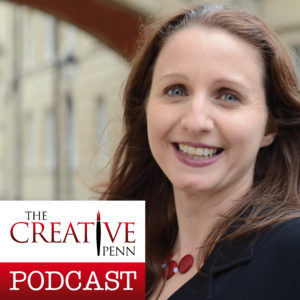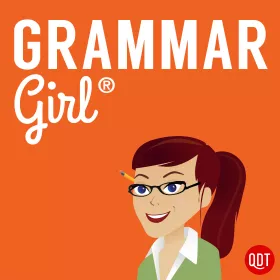
Resources for Writers
Here are some of my favorite resources for writers. A few are geared toward screenwriting, but I’ve found that studying story through film has a host of universal benefits. Screenwriting, as simply another form of story, helps you examine the bones of your novel’s structure and ensure each piece adds to your overall vision. Add these books, podcasts, websites, and other resources to your writing toolbox to augment your writing at any stage.
+ Books on craft, inspiration, and self-editing
On Writing: A Memoir of the Craft by Stephen King
- Stephen King gives an entertaining account of his career and delivers valuable insights about the craft of writing.
Save the Cat! Writes a Novel: The Last Book on Novel Writing You’ll Ever Need by Jessica Brody
- A best-selling author and writing educator applies Blake Snyder’s screenwriting structure to novel writing.
Structuring Your Novel: Essential Keys for Writing an Outstanding Story by K.M. Weiland
- An acclaimed author and writing mentor outlines a story structure that will guarantee a strong foundation for your plot and character arcs.
The Story Solution: 23 Actions All Great Heroes Must Take by Eric Edson
- A screenwriting professor studies the character actions all successful films have in common and suggests practical ways for you to embed them in your own story.
Bird by Bird by Anne Lamott
- A renowned novelist and writing teacher shares her personal observations and advice about the writer's life.
Inside Story: The Power of the Transformational Arc by Dara Marks
- An international film consultant examines how theme brings meaning and emotional depth to your writing.
The Magic Words: Writing Great Books for Children and Young Adults by Cheryl B. Klein
- An executive editor and editorial director provides a useful handbook for writing and publishing children's and YA books.
The Story Grid: What Good Editors Know by Shawn Coyne
- An experienced book editor proposes a clear system to help identify what's working and not working within your novel.
+ Books on grammar, word usage, and line editing
Grammar Girl’s Quick and Dirty Tips for Better Writing by Mignon Fogarty
- The internet’s popular Grammar Girl explains rules relating to grammar and word choice in an easily digestible way.
Common Errors in English Usage by Paul Brians
- A witty English professor corrects commonly confused expressions and mangled speech in this useful and amusing reference book.
The Elements of Style by William Strunk Jr. and E.B. White
- This little booklet focuses on helping you communicate clearly and correctly while writing.
The Chicago Manual of Style by University of Chicago Press
- This comprehensive American English style guide, commonly used in the areas of history, religion, philosophy, and the arts, includes topics that range from manuscript preparation to editorial practice to grammar and punctuation. I use this style guide in my editing, but if you’re traditionally publishing, be sure to follow whichever guide adheres to your publisher’s standards.
Editing Fiction at Sentence Level by Louise Harnby
- A veteran editor, writer, and podcaster expands upon common line issues in fiction, allowing writers to self-edit at sentence level.
+ For practical help while writing
The Emotion Thesaurus: A Writer’s Guide to Character Expression by Angela Ackerman and Becca Puglisi
- Two best-selling authors and writing coaches list hundreds of ways for writers to convey 130 different character emotions through personalized body language, thoughts, and internal responses.
The Emotional Wound Thesaurus: A Writer’s Guide to Psychological Trauma by Angela Ackerman and Becca Puglisi
- The writers of the popular Emotion Thesaurus compile and study common traumas that shape realistic character behavior, including fears, dysfunctions, and shifts in personality.
Writer’s Guide to Character Traits by Linda N. Edelstein, PhD
- An experienced clinical psychologist profiles the physical, mental, and emotional qualities of human behaviors, character types, and disorders to help you deepen your characters and aid in their believability.
The Writer’s Digest Sourcebook for Building Believable Characters by Marc McCutcheon
- A former literary agent packs this reference volume with author interviews on characterization, a detailed character questionnaire, and a list of physical and psychological human characteristics.
+ Podcasts
Writing Excuses
- Brandon Sanderson, Mary Robinette Kowal, Howard Tayler, and Dan Wells host a fifteen-minute podcast that explores a variety of techniques designed to help writers at all stages.
The Creative Penn Podcast
- International speaker, author, and entrepreneur Joanna Penn conducts interviews and shares her wealth of knowledge about making a living as a writer. You can view her full website here.
Grammar Girl's Quick and Dirty Tips for Better Writing
- Mignon Fogarty provides short, friendly tips to improve the accuracy of your writing. For further grammatical help, click here.
Story Grid
- Seasoned book editor Shawn Coyne teaches beginning fiction writer (and marketing expert) Tim Grahl how to write a book people will read. You can find the full website here.
+ Supplemental resources
Writer’s Digest
- This magazine’s collection of how-to articles, interviews, market listings, and further resources belongs on every writer’s shelf.
Brandon Sanderson’s YouTube lectures
- Epic fantasy and science fiction author Brandon Sanderson offers free YouTube videos of his thorough and insightful creative writing courses at Brigham Young University.





















